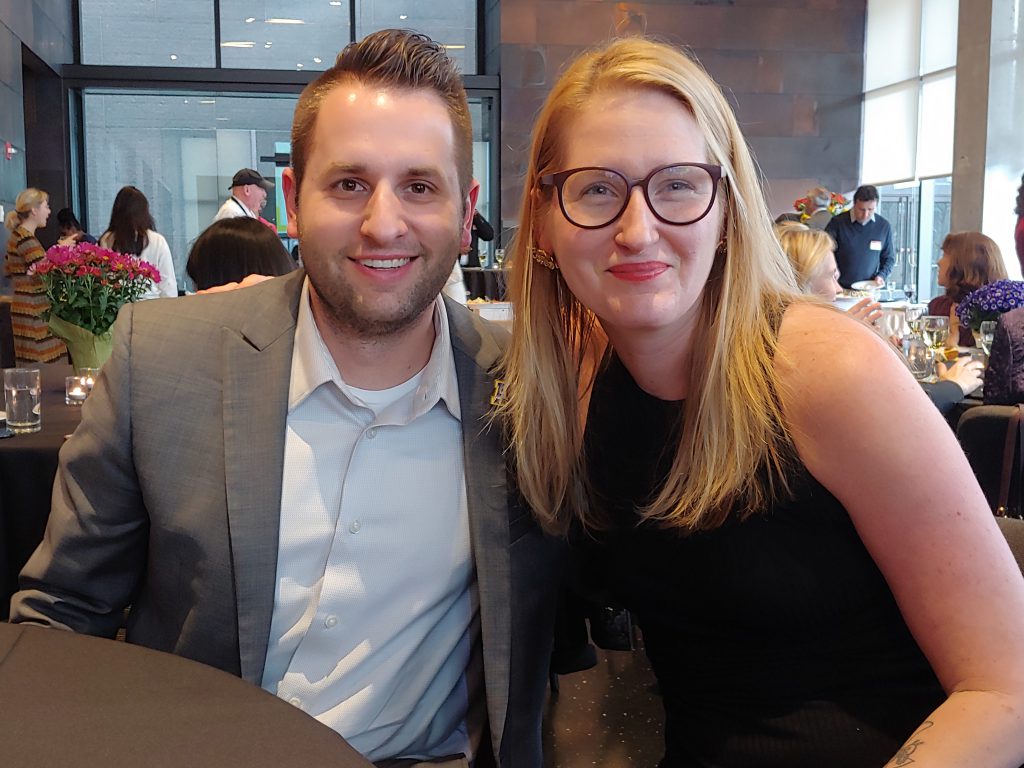Austin Stair Calhoun, PhD (2014, Sport Sociology), and Josh Lupinek, PhD (2015, Sport Management), were recognized and honored for their achievements at the annual College of Education and Human Development (CEHD) “Rising Alumni Reception” on April 18, 2019, at the McNamara Alumni Center. The reception seeks to honor CEHD’s best current alumni leaders, and connect them with past Rising Alumni award honorees and current Alumni Society Board members to forge new alliances.
Calhoun was nominated by Nicole M. LaVoi, PhD, who was her adviser during her time at the School of Kinesiology. Calhoun is currently chief-of-staff for the U of M Office of Medical Education, making her responsible for strategic operations and working with school leadership on new initiatives. Many of her past roles involved promoting access to technology for the common good, including director of eLearning + Digital Strategies for the School. Calhoun has a commitment to social justice, using her research findings to create awareness and policies around inclusive online content. She believes it’s important for professionals to “show up, follow up, and raise your hand up,” and enjoys problem-solving and innovating at work. Austin credits her time in the School with providing interdisciplinary opportunities that helped her create a unique educational experience as well as a strong network.
Lupinek is currently an assistant professor of business administration at the University of Alaska Fairbanks. He was nominated by past Rising Alumni recipient Chris Schulz, with whom he worked at the Active Kids Association of Sport. At the University of Alaska, Lupinek has developed a full Bachelors of Sport and Recreation Business degree program based on student interest and industry needs. His research interests include sport marketing and social network analysis. He founded Alaska’s first virtual reality research lab, where scholars from all disciplines can develop experimental uses for VR equipment. He also has been working with rural American Indian-Alaska Native communities that are off the road system to repurpose VR gaming equipment for public health uses. This project has been funded by the National Institutes of Health because of its potential to impact health disparities.




